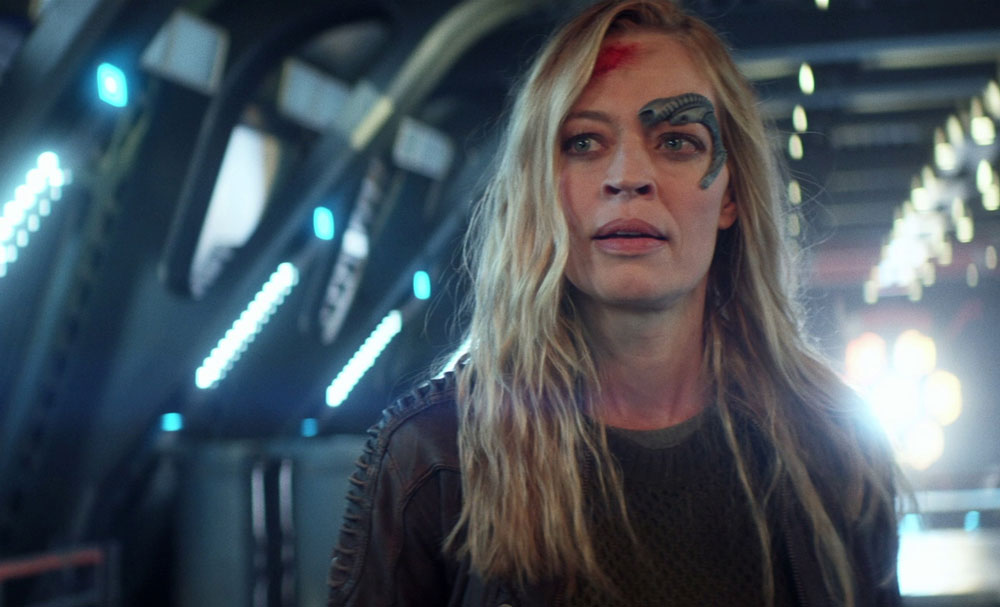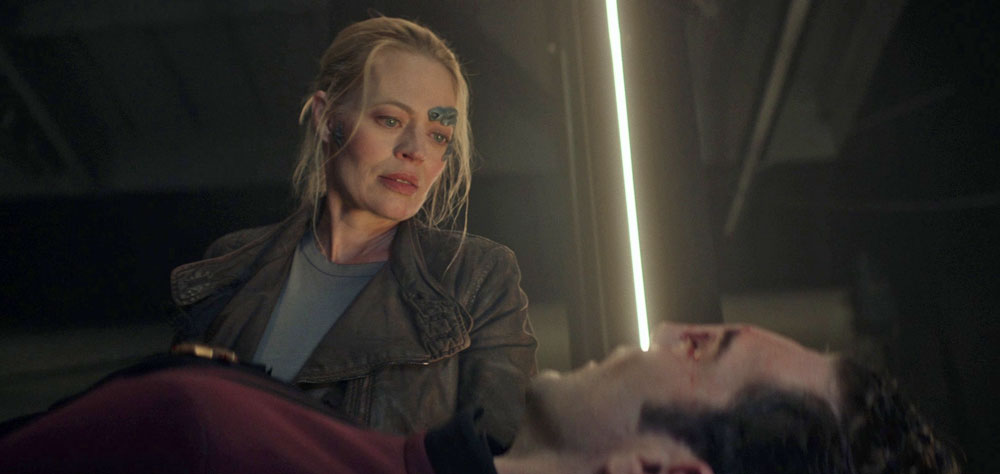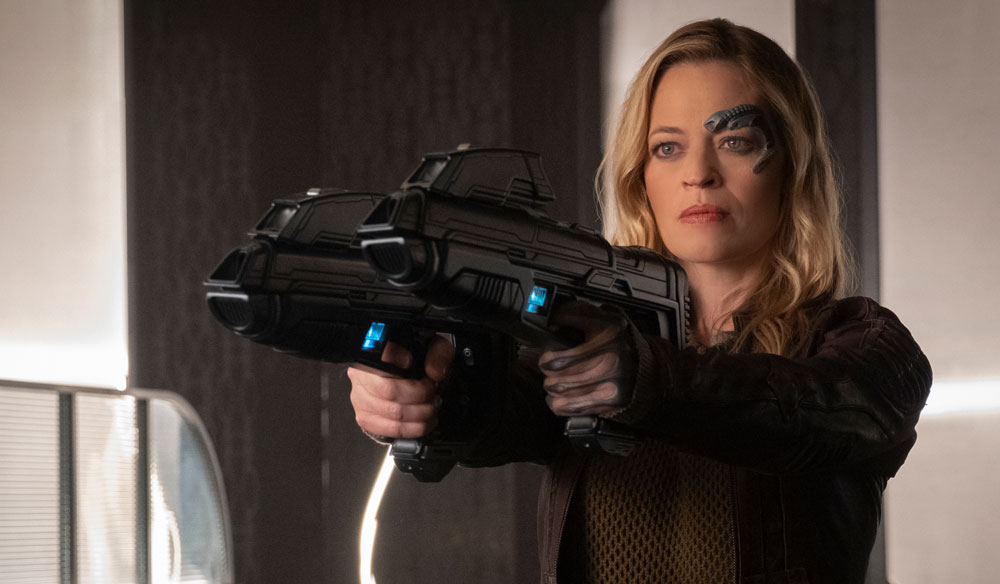What in the galaxy happened to Seven of Nine after her return from the Delta Quadrant? Star Trek: Picard — Firewall, the new novel from author David Mack, sets out to answer that very question.
If, like me, you started watching Star Trek: Picard from perspective of a long-term Voyager fan, you must have been thinking about it. So many things about Seven were changed: dropping her familiar jumpsuits for leather, going from champagne to bourbon, moving from male to female love interests, and adding both a tendency to curse and willingness to kill.
If not for Jeri Ryan’s expert acting, it would have felt like watching a completely different character.

On the other hand, if such a reinvention makes sense for anyone, it would be someone who was a Borg drone for 18 years and served on a Starfleet ship for the next four. For anyone wondering how exactly Seven of Nine’s reinvention took place, and what she went through to turn her into the Fenris Ranger introduced in Picard Season 1, Firewall offers answers… well, some of them, at least.
The novel begins and ends with Seven recounting her story to a beautiful stranger in a bar, a framing device some readers will find difficult to believe. Voyager’s Seven was not the kind of person who would tell her story to a stranger — beautiful or otherwise — and Picard’s Seven is even less likely to do so. The world of organized crime and espionage she’s living in at this point (before the events of Picard Season 1) should have taught her that it’s not a good idea to confide your most painful memories to someone whose name you don’t know.
Mack does Seven a disservice here, especially for an experienced Star Trek writer (his works include the Destiny and Cold Equations trilogies) proven to understand his subject matter.

The real story starts with Seven at a low point. Humiliated by Starfleet and the Federation — rejecting her because she’s ex-Borg — Seven is afraid that Admiral Kathryn Janeway is harming her own career by trying to help.
Feeling like like her only option is to cut and run, just like she did in “The Raven” and “Dark Frontier,” Seven lands on a remote industrial colony, doing mindless factory work, dancing in mosh pits and hooking up with strangers. If this sounds out of character for someone who prides herself on her intelligence, hates crowds and is self-conscious about her body (see “Survival Instinct” and “Human Error”), Seven herself soon realizes as much. When a Federation spymaster offers her exactly the life she wanted — citizenship and a place in Starfleet — in exchange for infiltrating a group of outlaws called the Fenris Rangers, it’s an offer she can’t refuse.
The Fenris Rangers, however, are not exactly outlaws. They are the legitimate law enforcement agency of a colony named Fenris, and the only ones keeping order in a sector of space from which the Federation has withdrawn. Fellow ranger Keon Harper mirrors the organization he serves: aging, overworked, running low on faith and resources, but still determined to serve and protect (not unlike the Voyager crew in their Delta Quadrant days).
Seven’s guns-blazing introduction to Harper, and their first adventure chasing criminals through a gritty neon city, are when the story kicks into high gear. Mack’s action scenes make strategic use of his characters’ abilities while also establishing them as a team: for example, Harper pilots the getaway hoverbike because Seven is the better shot (while also teaching her idioms like “cover our six”).

The same gift for strategy also serves Mack when it comes to the bigger geopolitical picture. The Qiris sector, where the Rangers operate, is like Seven: rejected by the Federation, left to survive alone, and in danger of falling to hostile forces. For Seven, those forces are anger, self-loathing of her Borg side and a spy gig that compromises her integrity; for the colonies, it’s a warlord named Kohgish, who starves planets into obedience by controlling their weather.
By challenging Harper and their fellow Rangers to help her stop Kohgish, Seven fights against the kind of suffering that makes people lose themselves. She does this by reminding her new colleagues (and herself) of who they really are, and what the Fenris Rangers stand for: “A firewall to protect the innocent from evil.”
This is, at its core, a story about identity. As a queer woman, she learns what she wants in a relationship; watching her fall in love while fighting crime with forensic accountant Ellory Kayd is one of the highlights of the story. Seven also relearns how to live in a community — having lost her parents, the Collective and her Voyager shipmates, this is the first time she gets to join one of her own free will. The Rangers are flawed and so is she, but they challenge each other to improve: “The real problem isn’t that she’s too hot for us to handle,” Harper tells their superiors, “It’s whether we’re strong enough to give her the backup she deserves.”
Finally, as an ex-Borg, Seven learns to take responsibility for her past without letting others shame her for it: “Never, ever let anyone tell me again that I don’t know my own [expletive] name,” she says, after being called Annika one time too many.
I don’t know about you, but in my opinion, there is nothing more Seven than that.
![]()
Star Trek: Picard — Firewall is in stores now.
Regina Peters lives in Montreal, works in the video game industry, and writes for Women at Warp and Forever Young Adult.
